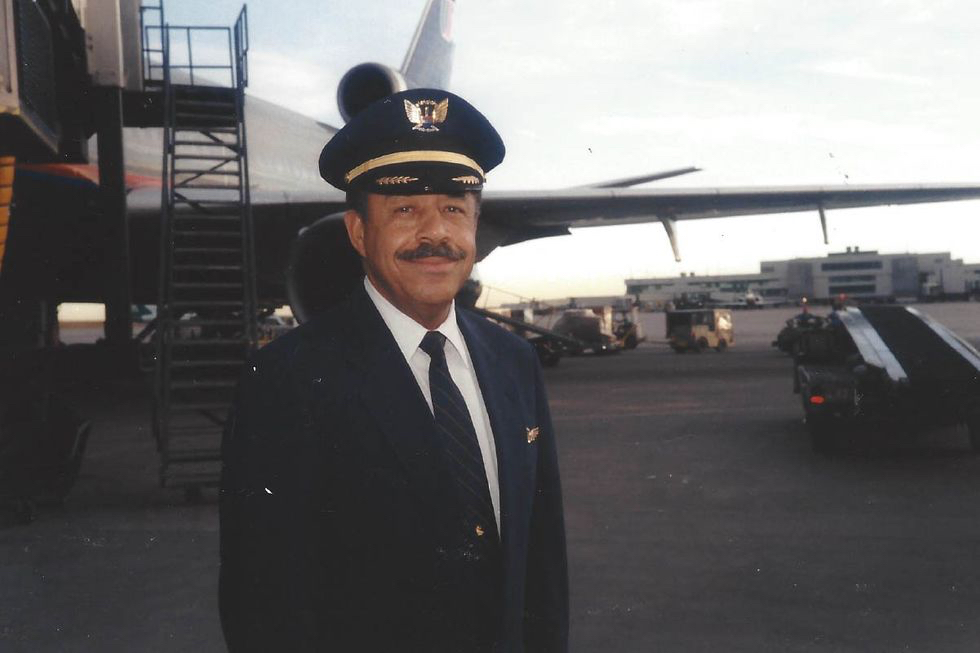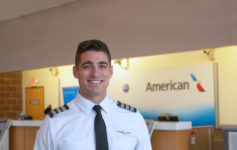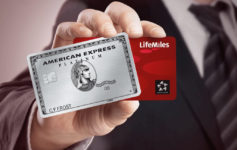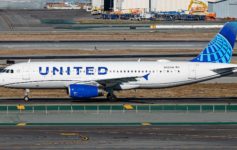
Bill Norwood is a legend, not just at United Airlines, but as one of the first Black American commercial pilots.
Here’s a heartfelt note that United CEO Oscar Munoz shared with employees that recognizes Norwood as part of a larger narrative on Black History Month..
If you walk into the famed Museum of Science and Industry on Chicago’s South Side, you’ll pass scores of artifacts and tributes to our progress as human beings, our boundless ingenuity and endless curiosity, and — above all — our capacity to come together in pursuit of a better future.
As you make your way through the building, if you cast your eyes upwards, you’ll see, suspended as if in mid-flight, the centerpiece of the whole exhibit: a beautiful United Airlines Boeing 727. Emblazoned on the fuselage you’ll see the aircraft is named after William (Bill) Norwood, the first African-American pilot for United Airlines and a trailblazing pioneer for not only our airline, but the aviation industry and our country, as well.
The arc of his extraordinary career traces the history of United Airlines, and the United States. His story tells us something vitally important about where we come from and where we ought to be going.
In his wonderful, inspiring memoir, “Cleared for Takeoff: A Pilot’s Story of Challenges and Triumphs,” Bill retells the story of his arrival at United’s Flight Training Center in Denver on May 31, 1965.
On that first day, Bill experienced the same frustrating attitudes he had faced when he took the field as the first African American quarterback of his university (he was also one of only two black college quarterbacks in the nation at the time), and also the first time he piloted the mighty B-52s for the U.S. Air Force.
“When a classmate asked me, in a condescending manner, which aircraft I had flown [previously], I proceeded to tell him I had flown the B-52 and had 1,400 hours in the jumbo jet,” Bill wrote. “I quickly added that the DC-6 would fit under one wing of the B-52. The word soon spread my qualifications were far superior to any of those of my classmates.”
This story captures the experience that I think many people can relate to, myself included. And it is something that too many of our friends and family deal with to this day.
Bill summed it up this way: “Whether it was segregation or discrimination, not only against people of color but also women, we were taught you have to work twice as hard to get half as far.”
Bill worked more than twice as hard, and he helped so many others in the United family go very far, indeed.
Across the system this February, we will continue to help tell these inspiring stories as we recognize Black History Month. We are doing more than talking, however; we are making change happen and championing the values of diversity, inclusion and respect that have made United an industry-leader for equality of opportunity and advancement.
For example, our consistent efforts that promote our minority-owned business partners earned us Top 50 designation from DiversityInc, celebrating our supplier diversity program.
Also, our exciting new pilot hiring program, Aviate, will help continue Bill Norwood’s legacy across United’s flight decks.
I think the greatest tribute we can offer to trailblazers like Bill, and everyone who shared his experience of trial and triumph, is to build an airline where every United family member and customer we serve can go as far as their dreams and talent lead them.
Ultimately, that is what that aircraft inscribed with his name is really all about. When we come together as people, with a common pursuit of a better future, that’s when we truly take flight.
Humbly,
Oscar
Munoz’s last sentence is quite profound…and very true.
Norwood is still alive, by the way. I’d love to meet him one day. What a story of greatness!
Ironically, the very first Black American pilot was David Harris, hired by American Airlines in 1964. Then there was Marlon Green. He was turned down by Continental Airlines on account of his race in 1963, litigated all the way up to the Supreme Court, and won. (Colorado Anti-Discrimination Commission v. Continental Airlines, Inc. 372 U.S. 714 no. 146). He joined Continental in 1965 and became a captain in 1966. Continental and United merged in 2012.
image: United Airlines




Did not know this story, Matthew. Thanks for sharing. I am going to grab that book today.
Ditto! That was a great “first in the morning” read.
I hope Captain Norwood reads this or someone sends it to him so you can meet and interview him! What a super story. Thanks very much for telling us about him.